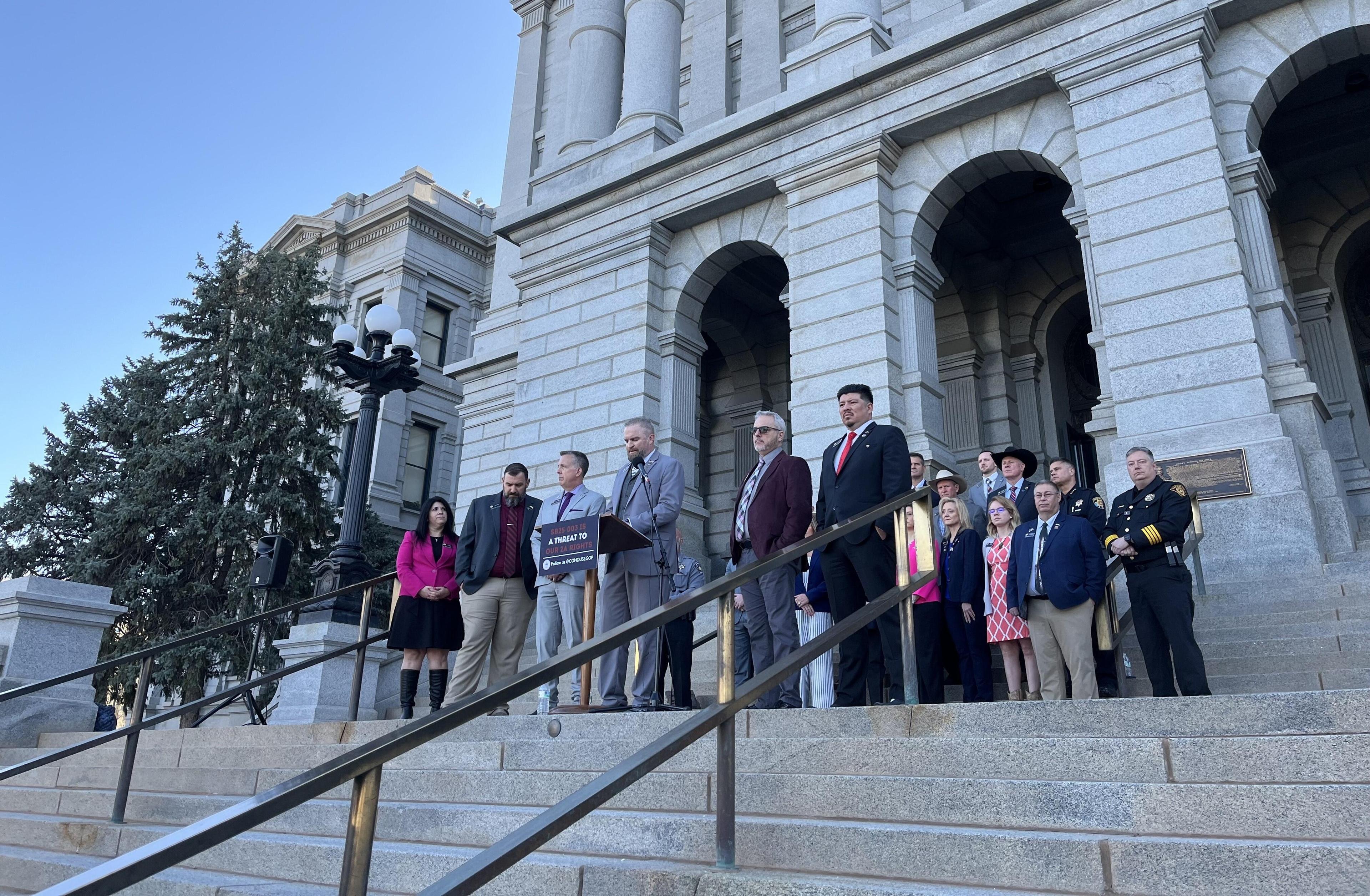
Annalouiza Armendariz of Denver recently found herself at the confluence of the Cannonball and Missouri rivers in south central North Dakota.
"It is beautiful rolling hills of tall grasses, immense skies," Armendariz says. "And as you start leaving Standing Rock at the edge of town, there's a bridge that you cross and that's when you start seeing the teepees and tents and yurts."
Armendariz is one of a number of Coloradans who've traveled north to join protesters opposing the Dakota Access Pipeline near the Standing Rock Sioux reservation. She says she felt a connection to the cause because she has indigenous ancestors in Mexico.
"There are some little berms to the north side that if you were to peer over them, that's when you can start seeing the pipeline because there's huge amounts of soil that has been trenched," she says.

The Standing Rock Sioux tribe has sued to stop it from crossing under the Missouri River near the tribe's reservation. They say the pipeline would endanger sacred sites and drinking water sources, and the federal government violated the Clean Water Act and The National Historic Protection Act by issuing permits for it.
Protesters there have, by and large, been peaceful. They began demonstrating through prayer in April. But more recently, as the number of protesters has grown, tensions with law enforcement have escalated, at times turning violent. The Los Angeles Times reported that more than 400 people had been arrested as of Sunday. That includes a Denver woman who faces attempted murder and other charges after allegedly shooting at a sheriff's deputy, according to the Denver Post.
Tuesday, President Obama told the news organization Now This that the U.S. Army Corps of Engineers, the federal agency that oversees the permitting process for the pipeline, is considering "rerouting" it.
To understand the situation, journalist Paul VanDevelder says you have to go back to the Founding Fathers. He wrote about that history for High Country News in a piece called "Reckoning at Standing Rock."
VanDevelder, who is also the author of two books about battles over tribal lands, spoke with Colorado Matters host Ryan Warner.










